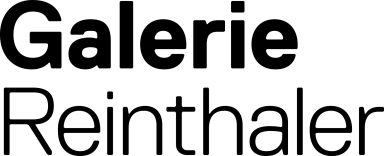10.09. - 18.10.2014
Tina Ribarits. TARA
Opening reception / Eröffnung: Tue / Die, 09. September 2014, 19.00 – 21.00
Closing reception / Finissage: Thu / Do, 16. October 2014, 19.00 - 21.00
Do you mean to tell me, Katie Scarlett O'Hara, that Tara, that land doesn't mean anything to you? Why, land is the only thing in the world worth workin' for, worth fightin' for, worth dyin' for, because it's the only thing that lasts.
– Gone with the Wind, dir. Victor Fleming (1939)
In this exhibition by Tina Ribarits, ownership of land haunts the gallery space. Ownership, particularly, of the country estate represented in Victorian and Antebellum literature (and their filmic adaptions). This is ownership that curiously seems to end up in the female protagonists’ hands (think Tara, think Howards End). Are these tales of feminist redemption and subversion? Maybe, but not uncompromised ones. Imperial and colonial histories linger in the walls of these estates (where did the money come from to pay for these grand piles?), and ownership not just of land but of human bodies is also implied and certainly not resolved.
Ribarits uses site-specific installative objects to create set-ups, evoking both an untamed indoors and the domesticated exterior. She treats these set-ups as virtual environments of a lingering past, allowing for a socio-visual exploration of the remainders. It’s a pastoral scene where neither nature nor history is innocent. In this virtual environment nostalgia gives way to slippage, and slightly different rules are in play. Materials learn how to behave differently, and we find ourselves with the ability to get inside of someone else’s perspective.
And yet, the virtuality Ribarits constructs is itself virtual. The images are neither 3-D nor first-person; they just wish they were. We see the idealized lines of the Photoshop master plan imposed on imperfect space, and if we look closely we notice that what looks like a computer-generated environment might be a (no less constructed) digital video, edited and slowed down. The joke, like a lot of good jokes, happens when ambition exceeds execution, and something is destablised. This compromised destabilisation is where possibility – and perhaps change –occur. This is how – without didacticism – reference here becomes a mechanism for possibility, and possibility becomes a tool for politics. This journey from reference to potential is strenuous, though, and the images that return to us bear the marks of that strain.
- Johanna Linsley, 2014
© 2024. Alle Rechte vorbehalten.
Wir benötigen Ihre Zustimmung zum Laden der Übersetzungen
Wir nutzen einen Drittanbieter-Service, um den Inhalt der Website zu übersetzen, der möglicherweise Daten über Ihre Aktivitäten sammelt. Bitte überprüfen Sie die Details in der Datenschutzerklärung und akzeptieren Sie den Dienst, um die Übersetzungen zu sehen.
